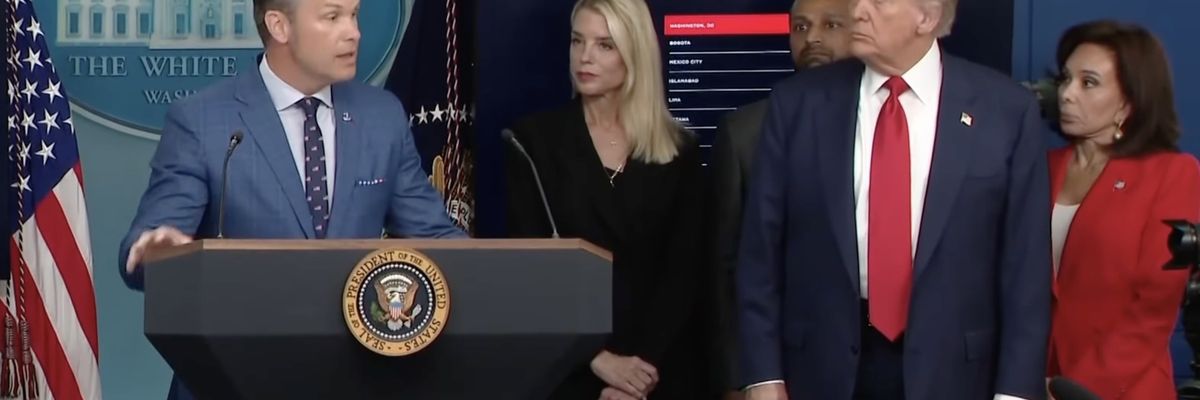Declaring a public safety emergency this morning, the Trump administration announced it will federalize the D.C. city police — and put National Guard on the city streets — to combat crime in Washington, D.C.
“Today we're declaring [a] public safety emergency…Attorney General, Pam Bondi…is taking command of the Metropolitan Police Department as of this moment,” Trump said.
"Last week, my administration surged 500 federal agents into the District, including from the FBI, ATF, DEA, Park Police, the U.S. Marshals Service, the Secret Service, and the Department of Homeland Security...They made dozens of arrests.”
Reports on Saturday indicated that 450 agents from various federal agencies had been unleashed on DC streets this weekend and indeed had made some arrests, including illegal gun charges, dirtbike riding in the park, and apprehending a fugitive from Maryland, according to FOX 5 local news on Sunday.
DC Mayor Muriel Bowser, in her first comments on the issue, said the arrests sounded like "a typical MPD rundown of arrests I review on a daily basis."
"This is what I know: we are not experiencing a crime spike," she told MSNBC on Sunday.
Trump doesn’t agree. “And we will bring in the military if it's needed, by the way. We’re going to have the National Guard,” Trump said Monday. “I don’t think we will need it,” he explained, saying other personnel will be on the ground.
Defense Secretary Pete Hegseth, also at the press conference, explained that the National Guard in D.C. will be “operationalized” by Dan Driscoll, the Secretary of the Army. He said D.C. residents “will see [National Guard members] flowing into the streets of Washington in the coming week."
















